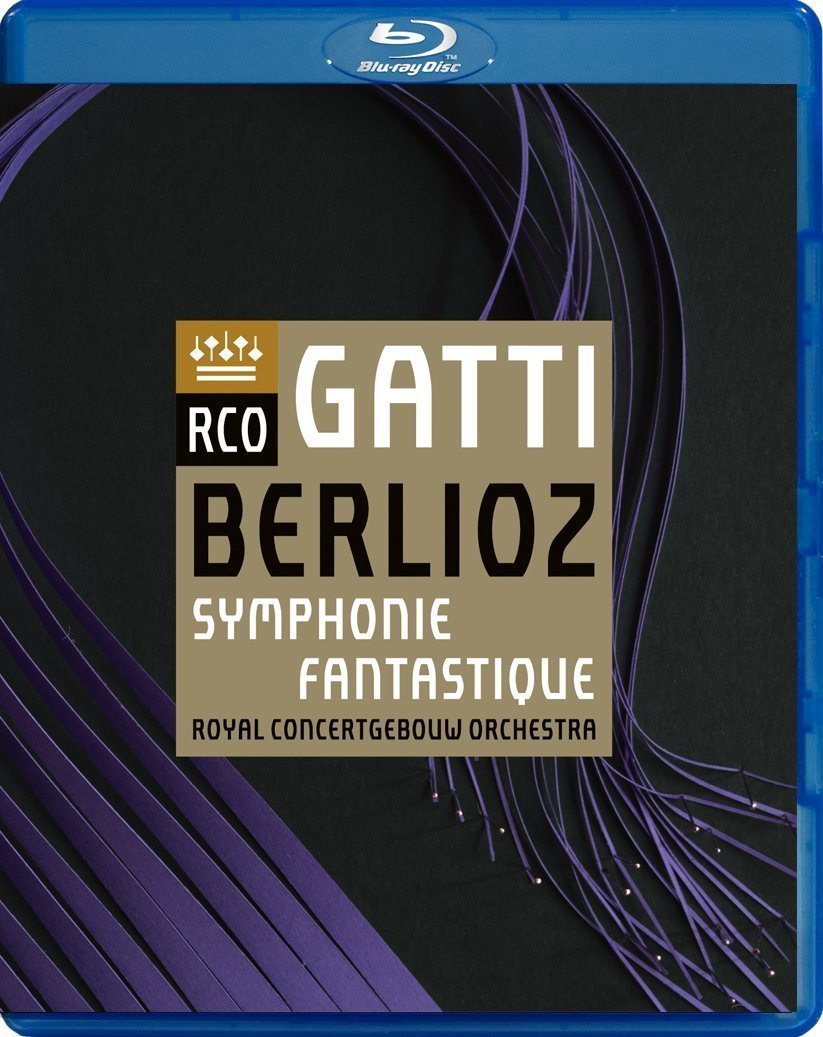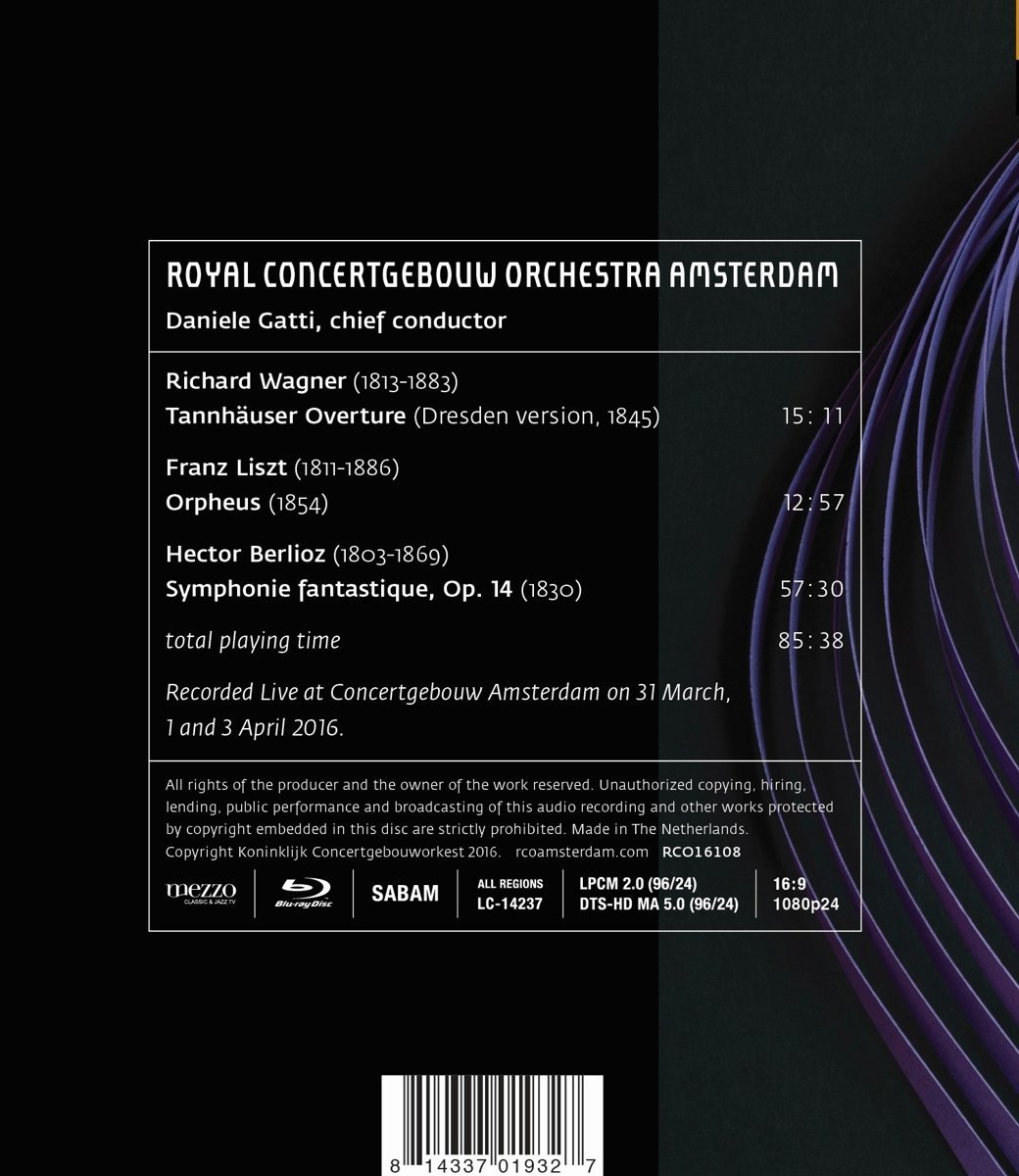Berlioz Symphonie fantastique performed 2016 by the Royal Concertgebouw Orchestra conducted by Daniele Gatti at the Concertgebouw. Concert also includes Wagner's Tannhäuser Overture (Dresden version) and the Liszt Orpheus (Symphonic Poem No. 4). Music recorded with 96kHz/24-bit sound sampling. Video was recorded at 1080p24, which is unusual as most video these days are recorded at 30 frames per second. (You may need to fiddle with equipment settings to get the 24 fps to play nice.) Released 2016, disc has 5.0 dts-HD Master Audio sound. Grade: NA
The recording arm of the Royal Concertgebouw operation is called RCO Live. It appears they have been pretty successful with CDs and other audio formats. But their video publication record is poor due to cutting corners and serious problems with DVDitis. Their Mahler Symphonies 1-10 box was a huge failure that got a D grade from us. Somewhat better was their Beethoven Symphonies 1-9 box that is graded B- here.
This new video of Symphony fantastique is not generous. RCO management is still stuck in the LP/CD rut while offering 85 minutes of music on a disc that can play for 4 hours. Well, if you want to charge $35 for one symphony, the content must be state-of-the-art in every respect. RCO has come through with 96kHz/24-bit sound sampling, which is encouraging.
But I note that this title is also available in DVD, which is discouraging. If the video content on the Blu-ray is the same as that of the DVD, then the Blu-ray version is automatically rendered obsolete as it falls short of today's state-of-the-art in making HD recordings of symphony concerts. (I did see a short video clip from this recording that prepares me to be disappointed.)
If you have this Blu-ray recording, I ask you to consult our Work Worksheet and Wonk Worksheet Instructions. Then I ask you to play this Symphony fantastique while assigning each video clip to the categories on the Wonk Worksheet. This will take some work. But if you do this work and let us publish it, you will instantly become an elite fine-arts critic. That's because the Wonk Worksheet is the only technique ever devised for art criticism that has objective standards that can be peer-reviewed. Have you got the guts to be a Wonk?


